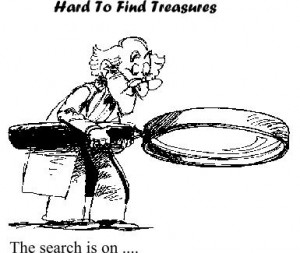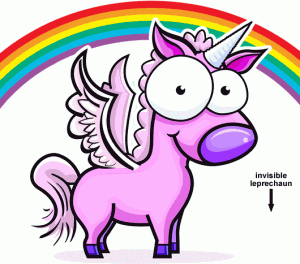UX… Let’s Stop Being Unicorns
I’ve mentioned several times before how I have the opportunity to attend many UX and technology events (mostly because I live in NYC and am a consultant, but also because I try my hardest take advantage of these situations). I’ve also mentioned before that I got to attend this year’s NY Internet Week (see UX… so you wanna work with startups for more thoughts on this event). What I haven’t mentioned here before is that I have discovered that we, as User Experience Designers, are unicorns. Meaning, we have skills and talents that technology companies want, need, but don’t truly understand, AND we are super hard to find. 
Now, these technology companies, especially startups, are creating a ton of new products and updating a great deal of old products all the time, and they are going to these technology events and discussing lessons learned and tips to success from their experiences. Unfortunately, when they are doing their creating and updating and reporting back to the tech community, they aren’t talking about user needs, goals and tasks in the least. Not one company, at least in the events I’ve attended, has talked about how they went out and did user research to understand current user behavior. They do market research, at times, but that isn’t what I’m talking about. I’m talking about the real, down low, getting to know your users. Instead, these companies talk about giving users new functionality they didn’t know they wanted or giving them functionality that they should want without knowing why or how the user might use it in real life.
Of course, in the UX world, this is a problem that we are well aware of. By not taking user behavior, tasks, needs and goals into account, these companies are designing for solutions to problems they haven’t yet defined. How can they be successful in this regard? We’ll leave that discussion for another day. The problem I want to talk about today is one for our UX world. That being, these companies have no idea who we are, what value we can bring, and that we are sitting right in front of them watching, listening, and shaking our heads in disappointment. This is a problem for our community, because it means that the people and companies that need us the most have no idea how to engage us. Thus, we are unicorns. We have the power to heal these companies “sickness”, to make their products better… but they don’t know how we do it (must be magic!). Further, we can only be captured by a virgin… ok that’s a long shot but the idea is that we are really hard to find. This is something we need to change.
So, what is our solution, how do we stop being unicorns? First thing is first, we need to be in the room. We need to be around the people whom we want to help (see UX… so you wanna work with startups for more thoughts on this). Whether startups or larger corporations, we have to get out of our shell and make our presence known. We can do this by attending events local to us, participating online in conversations that are related to the work we want to do, and ensuring we are branching out, beyond UX, in our search of knowledge.
Second, when we are in the room (or online), we need to be vocal. We can’t be flies on the wall. Instead, we need to speak up and make sure we are adding the UX perspective and educating others about the value that we bring. This, of course, should not be in a condescending way (don’t say “you idiot, you aren’t even thinking about the user.” but instead “how have you integrated the user perspective into your product roadmap?”). 
Third, we need to have empathy for the business and technology folks that we want to work with. We need to understand why they aren’t looking towards UX, or if they are what are they hoping to find. A lot of companies, especially startups, don’t realize that we can help them with their product definition and roadmapping. They just think we are UI! We need to gain understanding of their point of view of what UX is so that we can solve the problem of them not thinking of UX in the early stages.
By taking these steps, we stop being that unicorn. We make our presence in the technology and corporate community known, and we make sure that those involved realize all the value that we bring. We become tangible, real, but no less valuable. Once companies are better able to find us and understand us, then it becomes easier for UX to work with the businesses that we want to. This, of course, allows us to do what we do best; help define and solve problems for the betterment of our user base. No unicorn can do that.
